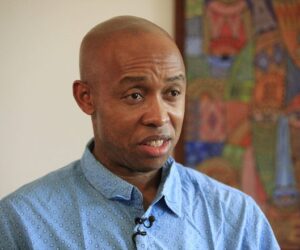“We must not allow fear to divide us. If we compromise our principles in pursuit of peace, we will have neither peace nor principle.” —Nelson Mandela
In recent weeks, several northern states notably Katsina, Zamfara, Kaduna, and Sokoto have been in the spotlight for striking peace deals with armed bandit groups. Most troubling is the reported engagement with the notorious warlord Bello Turji, who has himself released videos confirming the negotiations.
SPONSOR AD
Equally concerning, a prominent Kaduna-based Islamic cleric has appeared in media interviews and viral audio clips openly discussing his role in the process. At first glance, dialogue with violent actors may appear pragmatic.
Contemporary security practice does, in fact, embrace both kinetic measures which involve the use of military and law enforcement power—and non-kinetic strategies such as dialogue, amnesty, rehabilitation, and community engagement.
Nigeria’s counter-insurgency against Boko Haram, for instance, has combined force with deradicalisation and reintegration. Internationally, Colombia’s peace deal with the FARC (Revolutionary Armed Forces of Colombia) guerrillas illustrates how dialogue, when structured and state-led, can complement coercive strategies.
The current experiment in northern Nigeria, however, falls far short of this standard. Negotiations are neither state-led nor professionally coordinated; they are driven largely by community leaders and Islamic clerics under the guise of ensuring farmers can access their farmlands.
Security agencies, by either their passive endorsement or direct presence, have lent these efforts a veneer of legitimacy. This is dangerous. Engagement with armed groups must be discreet, intelligence-driven, and morally defensible. What we are witnessing today is the opposite: overt bargaining that emboldens criminals, undermines justice, and alienates victims.
The moral cost of such gestures is profound. It is disgraceful to publicly court the very warlords whose victims are still mourning murdered relatives, displaced from ancestral homes, or struggling to rebuild shattered livelihoods. Instead of weakening the resolve of armed groups, overt negotiations are more likely to embolden them. Recently, my sister recounted how my young niece has developed a deep fear of motorcycle sounds after witnessing a broad-daylight bandit attack in Rijau, Niger State. This personal anecdote reflects a wider psychological trauma now ingrained in northern communities.
The wider consequences are already evident. Renewed attacks have been reported in states where these so-called “peace talks” were held. In Kaduna and Kano, phone snatching has become a normalised menace. Elsewhere, viral videos show youths brazenly brandishing weapons while mourning the death of a notorious thug. Such images capture a grim reality: when the state hesitates to punish crime but appears to reward outlaws, society internalises the message that criminality pays. Nigeria has faced this cycle before.
In Zamfara, repeated peace deals with bandits collapsed within weeks, as criminals quickly returned to kidnapping after pocketing incentives. In the Niger Delta prior to the 2009 amnesty, splinter militant groups exploited public dialogue to demand fresh concessions, escalating violence in the process. Beyond Nigeria, Pakistan’s repeated ceasefire agreements with the Tehrik-iTaliban Pakistan (TTP) provide a cautionary tale. Each agreement gave militants space to regroup, rearm, and expand their influence, with violence eventually returning on a greater scale.
Northern Nigeria risks repeating these mistakes if it continues to openly legitimise bandits. To be clear, non-kinetic measures remain indispensable in any comprehensive counter-crime or counter-insurgency framework. Yet they must be grounded in discipline and strategic coherence. Dialogue should be covert, conditional, and backed by verifiable intelligence. Amnesty, if offered, must hinge on demonstrable disarmament, surrender of weapons, and genuine accountability. Above all, the state must never extend legitimacy to notorious killers in ways that signal weakness.
Banditry is not an ideological insurgency with negotiable political grievances; it is a predatory enterprise rooted in extortion, kidnapping, and brutality. The only sustainable response is a calibrated mix of kinetic operations to deny safe havens and targeted non-kinetic programmes to reintegrate repentant foot soldiers without glorifying or rewarding warlords.
The North is not without resources to chart a different path. Its history of governance predates colonial structures and offers deep wells of cultural and religious authority. Community and religious leaders should, therefore, shift away from transactional deals with criminals and instead champion the restoration of core societal values. Working in synergy with security agencies, they can present a united moral and strategic front against banditry. Above all, the Northern Governors Forum must rise beyond rhetoric.
Banditry thrives in a climate of poverty, illiteracy, and youth disaffection. It cannot be defeated by security measures alone. The governors must adopt a coordinated regional strategy that places education and agriculture at its heart. Education remains the most powerful tool for empowering youth, dismantling extremist narratives, and building resilience against crime. Agriculture, properly revitalised through mechanisation, irrigation schemes, and agro-processing, offers both employment and food security, directly undercutting the economic base of criminal recruitment.
No single state can achieve this in isolation. The governors must pool resources, harmonise policies, and strengthen regional institutions to create viable alternatives to violence. If they succeed, they will not only contain banditry but also lay the foundation for economic revival and social stability across the North. Only then can peace be secured without compromising justice—and only then can the North reclaim its dignity from the grip of banditry.
Shambo is the Founding Partner, Legacy Initiative D83, Farm Centre,Tunga Minna,Niger State [email protected]








